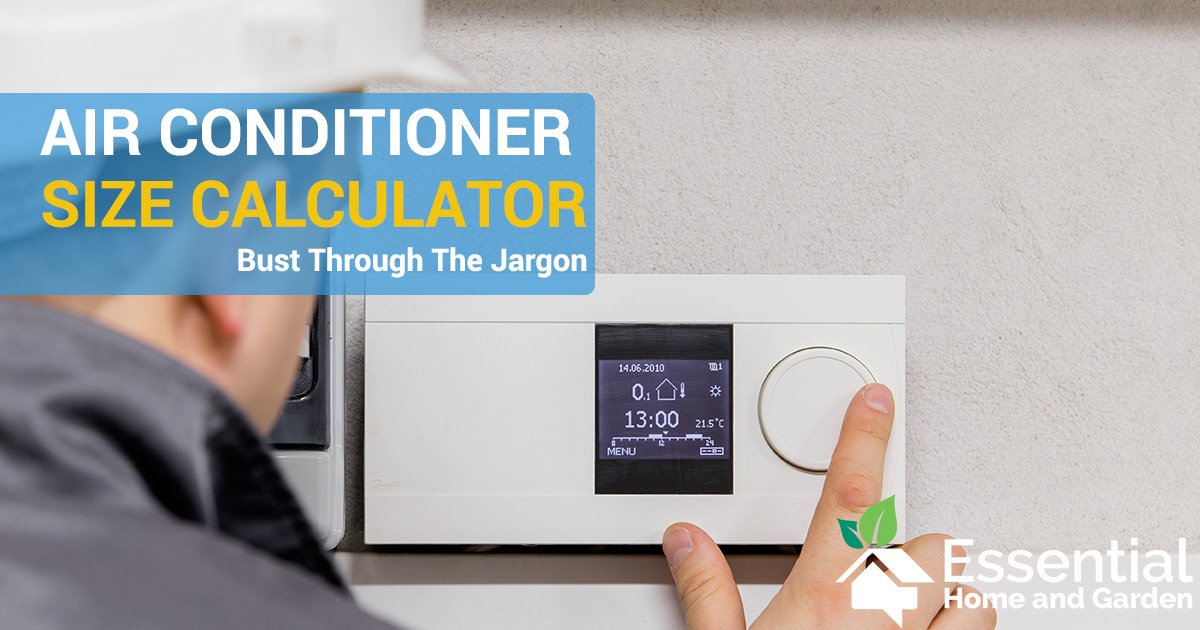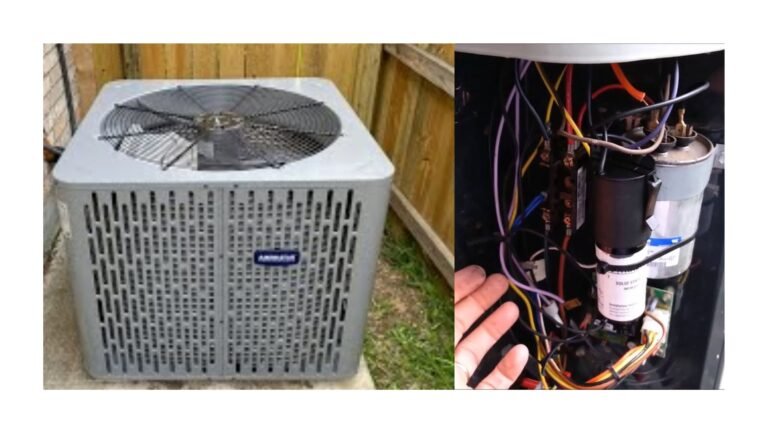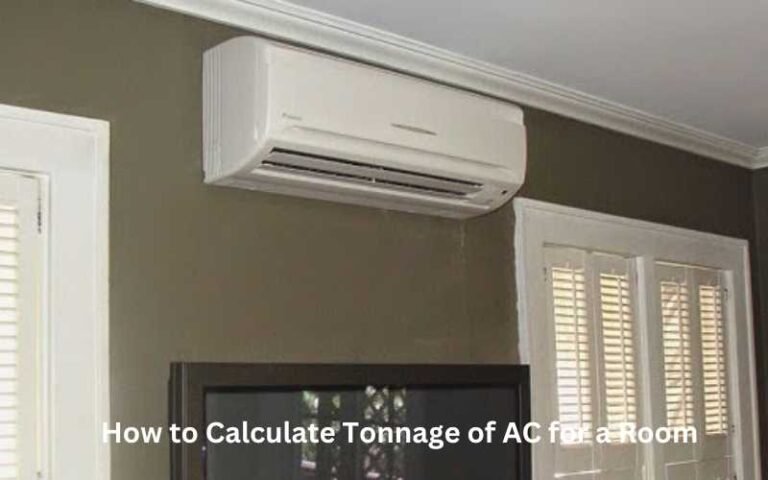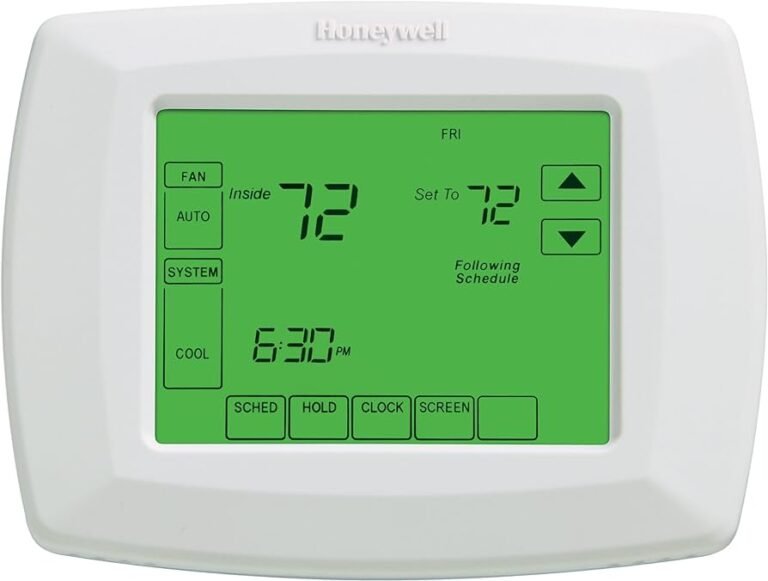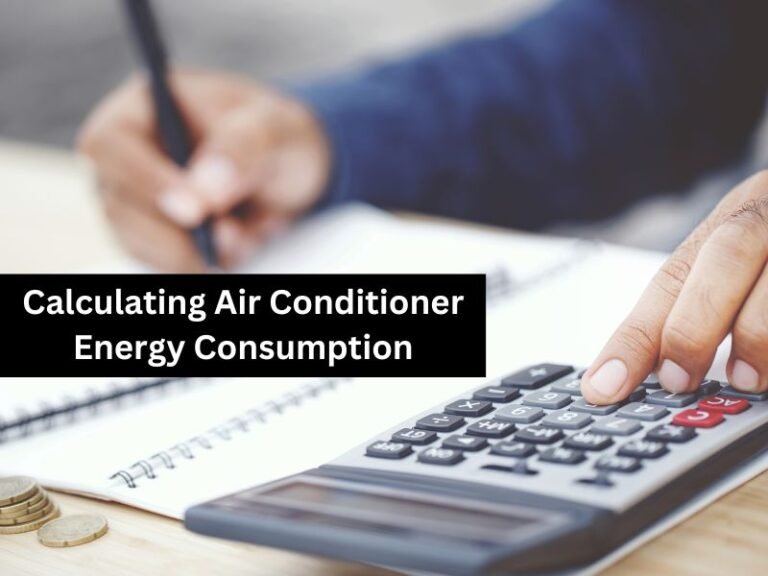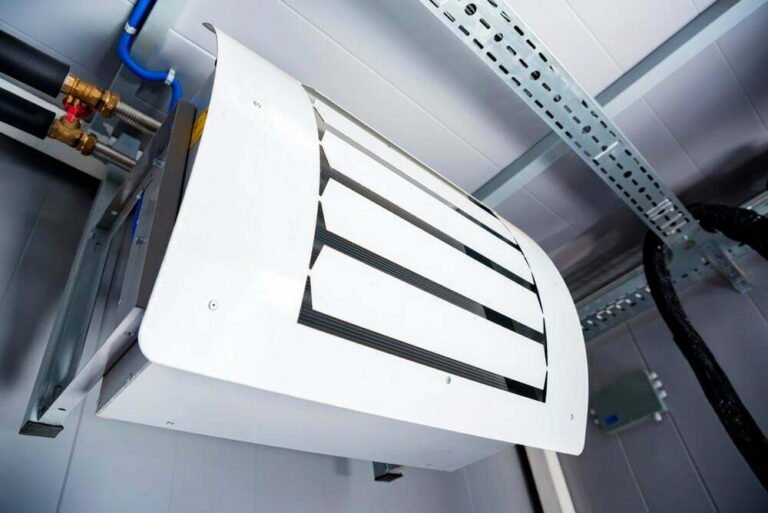How to Calculate Air Conditioner Size For a House
To calculate the size of an air conditioner for a house, you need to consider factors such as square footage, insulation, number of windows, ceiling height, and climate. These calculations are crucial in determining the appropriate BTU (British Thermal Units) capacity required to effectively cool the space.
By accurately assessing these factors, you can ensure optimal cooling efficiency and prevent over or under-sizing of the AC unit, leading to energy savings and improved comfort in the house.
Understanding The Importance Of Proper Air Conditioner Sizing
Properly sizing your air conditioner is crucial for optimal performance and energy efficiency. Calculate the correct air conditioner size for your house to ensure maximum comfort and cost savings.
Having the right-sized air conditioner in your house is crucial to ensure optimal energy efficiency and maximum comfort. Whether your unit is undersized or oversized, it can have a significant impact on the performance and performance of your air conditioner.
Let’s explore why proper air conditioner sizing is essential and how an incorrect size can affect energy efficiency and comfort.
Why Having The Right-Sized Air Conditioner Is Crucial
- An undersized air conditioner will struggle to adequately cool your house, leading to discomfort during hot summer days.
- On the other hand, an oversized unit will cool the space quickly, but it won’t run long enough to remove moisture adequately, resulting in a clammy and uncomfortable environment.
- Proper air conditioner sizing ensures that the unit operates at its peak efficiency, providing the right amount of cooling without wasting energy.
How An Undersized Or Oversized Unit Can Affect Energy Efficiency And Comfort
An undersized air conditioner:
- Strains to cool the space, leading to increased energy consumption and utility bills.
- Runs continuously, causing wear and tear on the system, leading to more frequent breakdowns and repairs.
- Fails to maintain a consistent and comfortable temperature, resulting in hotspots and uneven cooling.
An oversized air conditioner:
- Cycles on and off frequently, known as short cycling, wasting energy and increasing operational costs.
- Doesn’t have enough runtime to dehumidify the air properly, leading to high humidity levels and potential mold growth.
- Creates uncomfortable temperature swings, causing you to constantly adjust the thermostat to maintain a comfortable environment.
The Role Of Btu In Determining Air Conditioner Size
BTU, or British Thermal Units, is the measurement used to determine the cooling capacity of an air conditioner. To ensure the right-sized air conditioner for your house, it’s essential to calculate the necessary BTU based on various factors such as room size, insulation, sun exposure, and the number of occupants.
Proper air conditioner sizing based on BTU ensures:
- Efficient cooling without wasting energy.
- Adequate dehumidification for a comfortable indoor environment.
- Longevity and reliability of your air conditioning system.
Remember, it’s crucial to consult with a professional HVAC technician who can assess your specific needs and perform a load calculation to determine the correct BTU requirement for your house. By investing in the right-sized air conditioner, you can enjoy optimal comfort and energy-efficient cooling all year round.
:max_bytes(150000):strip_icc()/air-conditioner-sizing-1152666-01-fbe061273b49449ab7a348ba166a6dff.jpg)
Credit: www.thespruce.com
Factors To Consider For Air Conditioner Sizing
Calculating the size of an air conditioner for your house involves factors such as room dimensions, insulation, and climate. Ensuring the right size unit will ensure optimal cooling efficiency and comfort for your home.
Choosing the right size air conditioner for your house is crucial for maintaining comfortable indoor temperatures and optimizing energy efficiency. It’s important to take into account various factors that can impact the load calculation and ultimately determine the size of your air conditioning unit.
Here are the key factors to consider:
Manual Load Calculation: What It Involves And Why It’S Necessary
- Manual load calculation is a comprehensive process that determines the cooling and heating requirements of your house. It takes into consideration factors like insulation levels, window types, and the number of occupants.
- This calculation is necessary to ensure that you don’t end up with an air conditioning unit that is too small, leading to inefficient cooling, or one that is too large, resulting in frequent on-off cycles and wasted energy.
Measuring The Dimensions Of The House
- A crucial step in determining the appropriate size of the air conditioner is accurately measuring the dimensions of your house. This includes the square footage of each room, the ceiling height, and the total volume of the space.
- Taking accurate measurements helps to calculate the cooling capacity required to effectively cool your house, ensuring optimal comfort levels.
Considering North Vs South Exposures
- The orientation of your house plays a significant role in determining its cooling needs. North-facing rooms generally receive less direct sunlight, resulting in lower heat gains compared to south-facing rooms.
- By understanding the different exposures of your house, you can make more accurate load calculations and select an air conditioner size that best suits your specific cooling requirements.
Factors That Can Impact Load Calculation Results
- Certain factors can impact the load calculation results, which in turn affect the size of the air conditioner required. These factors include insulation levels, the presence of shade or trees, and the number of windows and doors.
- For example, a well-insulated house with ample shade may require a smaller air conditioning unit compared to a poorly insulated house with large windows and minimal shade.
Remember, it’s important to consult with a professional HVAC technician to accurately calculate the load and determine the appropriate air conditioner size for your house. By considering these factors, you can ensure efficient cooling and optimize energy consumption for a comfortable living environment.
Determining The Ideal Air Conditioner Size For Your Home
Calculating the ideal air conditioner size for your home is crucial for optimal cooling efficiency. By considering factors such as the square footage of your space, insulation, and climate, you can determine the correct BTU capacity needed to keep your house cool and comfortable.
When it comes to selecting the right air conditioner size for your home, it’s crucial to find the perfect balance between efficiency and cooling power. Air conditioners come in various sizes, and choosing the right one depends on several factors.
In this section, we will explore the range of air conditioner sizes available for residential use, understand the recommended BTU per square footage guidelines, and learn how to adjust BTU requirements based on other factors such as insulation, ceiling height, and windows.
Lastly, we will discuss the importance of consulting with HVAC professionals for accurate sizing recommendations.
The Range Of Air Conditioner Sizes Available For Residential Use:
- Air conditioners for residential use typically range from 1.5 tons to 5 tons.
- One ton of cooling is equivalent to 12,000 BTUs (British Thermal Units).
- The size of the air conditioner you choose depends on the square footage of the area you need to cool.
Understanding Recommended Btu Per Square Footage Guidelines:
- As a general rule, you need about 20 BTUs per square foot of living space.
- For example, a 1,000 square foot room would require an air conditioner with around 20,000 BTUs (1,000 sq ft × 20 BTUs).
Adjusting Btu Requirements Based On Other Factors:
- Insulation: If your home has excellent insulation, you may reduce the BTU requirements by 10-15%.
- Ceiling height: If you have higher ceilings, you’ll need to increase the BTU requirements by around 10% for each additional foot over 8 feet.
- Windows: If your room has many windows or is significantly exposed to sunlight, you may need to increase the BTU requirements by 10-20%.
Consulting With Hvac Professionals For Accurate Sizing Recommendations:
While these guidelines provide a good starting point, it’s essential to consult with HVAC professionals for accurate sizing recommendations. They can conduct a thorough assessment of your home, taking into account other factors like climate, local humidity levels, and the specific layout of your space.
HVAC professionals have the expertise to perform load calculations and determine the ideal air conditioner size to keep your home comfortable and energy-efficient.
Remember, choosing the right air conditioner size is crucial for optimal cooling efficiency, lower energy consumption, and maintaining a comfortable indoor environment. By considering all the factors mentioned above and seeking professional advice, you can ensure that you select the perfect air conditioner size for your home.
Frequently Asked Questions On How To Calculate Air Conditioner Size For A House
How Do I Calculate What Size Air Conditioner I Need?
To calculate the size of air conditioner you need for your house, use an AC tonnage calculator or consult with an HVAC professional. Proper system sizing ensures efficient cooling.
How Many Square Feet Does A 3-Ton Ac Unit Cover?
A 3-ton AC unit can cover approximately 1,000 to 1,200 square feet of space.
What Size Air Conditioner Do I Need For 2000 Sq Ft House?
For a 2000 sq ft house, the recommended size for an air conditioner would be determined based on factors such as insulation, number of windows, and climate. It is best to consult with an HVAC professional to accurately determine the size needed.
How Many Ton Ac Do I Need For 1500 Sq Ft?
For a 1500 sq ft area, you will need a tonnage of AC based on the recommended guidelines for cooling efficiency and comfort.
Conclusion
Calculating the right size air conditioner for your house is crucial for maintaining a comfortable indoor environment. By following the steps mentioned earlier, you can ensure that you choose the appropriate BTU size for your specific needs. Remember to measure the square footage of each room, consider insulation and ceiling height, assess the number of occupants, and take into account factors such as climate and sun exposure.
Choosing an air conditioner that is too small for the area you want to cool will result in inefficiency and inadequate cooling, while selecting a unit that is too large can lead to excessive energy consumption and uncomfortable temperature fluctuations.
By getting the sizing right, you can optimize your air conditioner’s performance, reduce energy costs, and extend the lifespan of the unit. To ensure accurate calculations and professional advice, it’s always recommended to consult with HVAC experts who can perform load calculations and provide personalized recommendations.
Remember, the right air conditioner size is the key to maintaining a comfortable and energy-efficient home environment.

